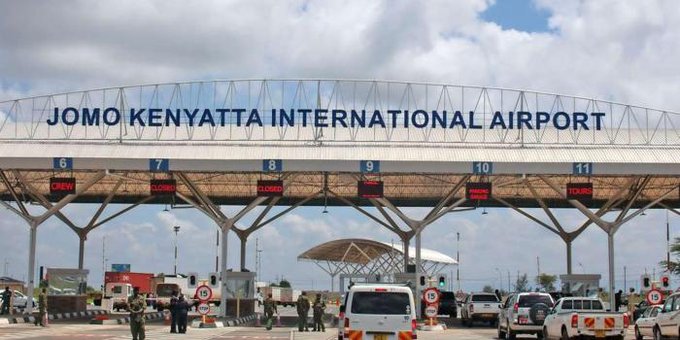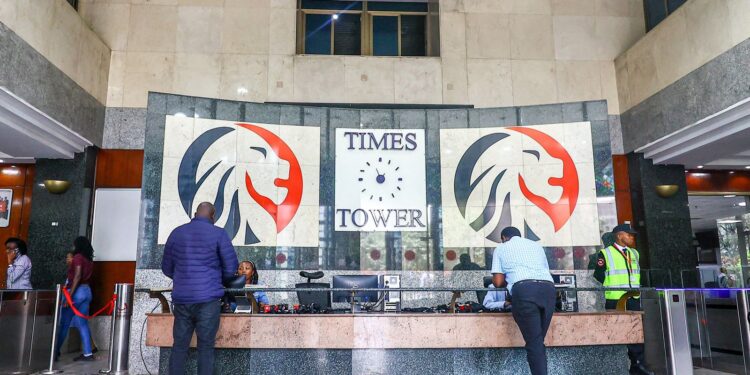The Kenya Revenue Authority (KRA) has issued a clarification on the implementation of Device Control Touchpoint as part of its Enterprise API Integration (EAPI) project, focusing on mobile devices.
In a press release, KRA said the initiative is designed to ensure proper tax declaration, payment, and verification for mobile devices imported into or assembled within Kenya, using IMEI (International Mobile Equipment Identity) numbers for effective monitoring.
The Authority said the move applies to all devices which are to be used within the local network.
However, the taxes will not be applicable to foreigners who are in Kenya for temporary stays.

Kenyans from Abroad
Kenyans returning from abroad with phones valued at below $2000 (Ksh257,994) will not be subject to taxation.
“For accompanying baggage, we will allow a mobile device for personal use. However, the quantities must not appear to be for trade purposes. All items in the accompanied baggage including mobile phones should not exceed $2000,” KRA said.
KRA explained that the requirement is necessary to curb smuggling and importation of counterfeit.
KRA explains effect of new rules on Tourists
Additionally, KRA said the process for declaration on the F88 is being automated and that passengers will not be required to declare their mobile devices on exit.
The Authority also clarified that tourists and short-term visitors will not be affected by this requirement.
According to the Taxman, all devices on roaming numbers (tourists who come to the country with foreign numbers) will not be subjected to the declaration process.
Visitors buying local sim cards will have a support process to facilitate their device compliance to access the network.
KRA said it is implementing the initiative alongside the Communications Authority (CA) since its mandate is to collect taxes and ensure compliance with tax laws, while the CA’s role involves regulating communication services.
“KRA works with other regulatory authorities to ensure compliance of products coming into the country,” KRA explained.
“This initiative combines regulatory oversight from CA with KRA’s tax enforcement to enhance compliance and prevent tax evasion.”
The Authority said registration of IMEI numbers is a crucial step in verifying tax compliance for mobile devices.
KRA explained that CA mandates the registration of IMEI numbers as a control measure to protect Kenyans from fraudsters, counterfeit products, scammers, and smugglers.
“By registering IMEI numbers, we can ensure that all mobile devices in use are legitimate and have met the necessary tax obligations,” KRA said.
Also Read: KRA Announces Ksh3 million Promo: Eligibility & How to Participate
FAQs on KRA’s EAPI
1.What about clearing the market of unregistered devices?
Answer: The system will provide an opportunity for unregistered devices to be registered on the platform.
This registration window will be available for a specific period, which will be communicated in due course.
During this period, all users with unregistered devices will be required to register their devices to ensure compliance with the new regulations.
This initiative aims to clear the market of unregistered devices, thereby reducing the risk of fraud, counterfeit products, and other illegal activities.
2.How will the Authority handle counterfeit devices?
Answer: Counterfeit devices are identified and flagged during the declaration process.
Importers are required to provide accurate IMEI information, which is crucial in detecting and preventing the entry of counterfeit products into the market.
Once a device is flagged as counterfeit, the information is handed over to the competent authorities.
This process helps ensure that counterfeit devices are effectively removed from the supply chain, protecting consumers from fraudulent and potentially harmful products.
Customs officers at all entry points will be trained and equipped to ensure that the declaration process is smooth and compliant with new regulations.
Also Read: KRA Issues Fresh Directive on Mobile Phones
Safety, Penalties & Misused IMEI Numbers
3.How safe are databases handling this information?
Answer: The Authority has robust security measures and adheres to the Data Protection Act to ensure all user data, including IMEI numbers, is protected and used solely for compliance purposes.
4.What penalties will be imposed for non-compliance?
Answer: On importation, for devices which have not paid taxes, they will be deposited until such payment is done.
5.How will you manage issues with cloned or misused IMEI numbers?
Answer: KRA will work closely with Communication Authority to determine cases of misuse or cloning of IMEI numbers, ensuring that innocent users are protected and that appropriate actions are taken against offenders.
Cost of Importing Phones
6.How will the public be informed about the new process?
Answer: The KRA will implement user-friendly platforms for declarations, including mobile apps and USSD services, and will engage stakeholders and conduct public awareness campaigns to inform citizens about the requirements and processes involved.
“The Device Control Touchpoint will be implemented effective 1st January 2025, with specific system guidelines to be shared before this date,” KRA said.
7.Will this new measure affect the cost of importing phones, and if so, how will it impact consumers?
Answer: No, the new measure won’t directly increase the cost of importing phones.
Instead, it’s designed to ensure that all imported devices are subject to the applicable taxes, which should help eliminate unfair competition.
For consumers, this could mean a more balanced market where prices are fairer and more consistent across different brands and models.
Follow our WhatsApp Channel and join our WhatsApp Group for real-time news updates.











































































